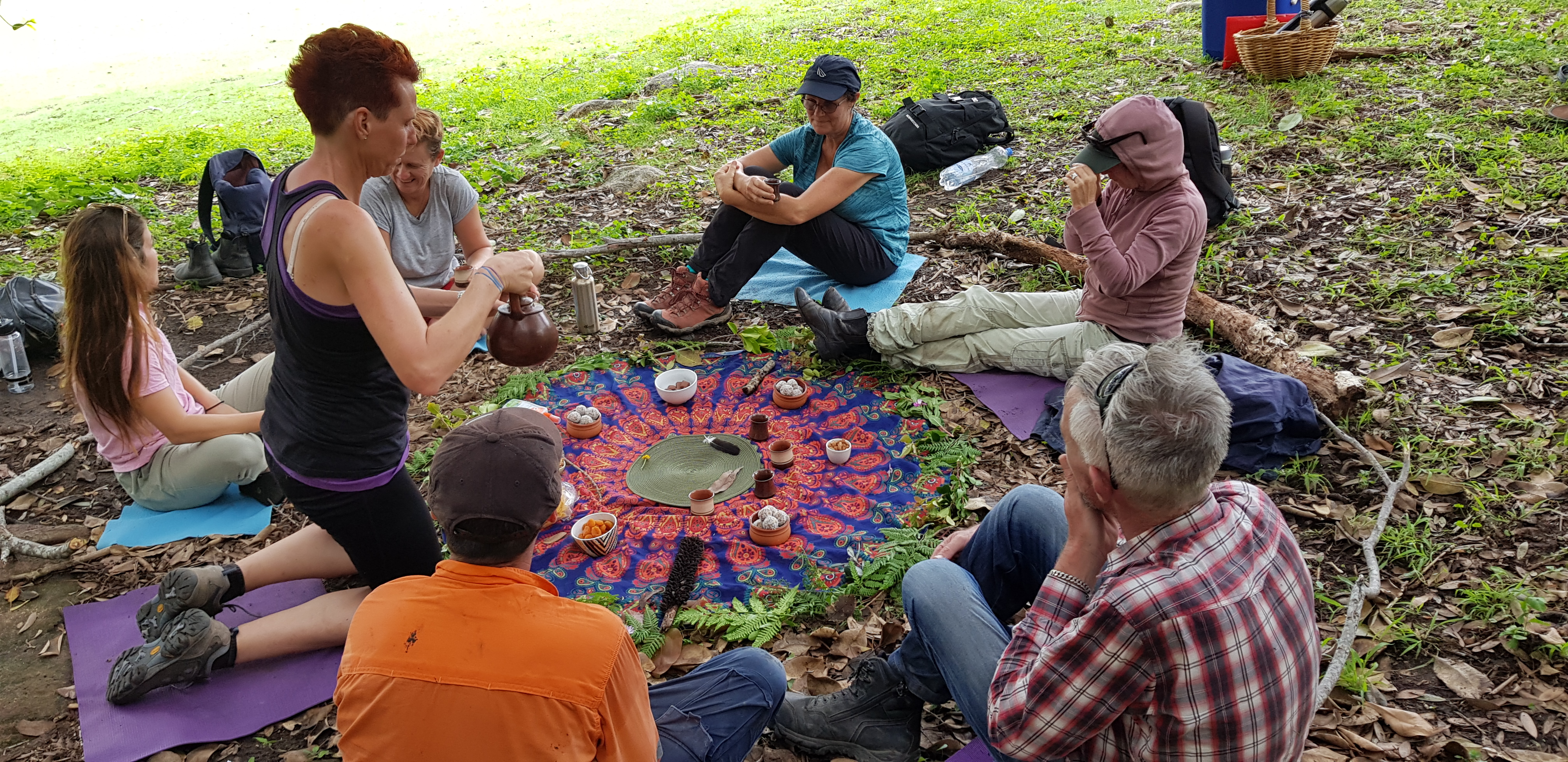What is “Narrative Walks”?
Creator, Chris Dharmody says “Narrative Walks” is designed to be a decentred, de-pathologising program that allows different people to participate with a variety of different problems and level of complexities, which we utilise as an entry point to a re-authored narrative”. The group work program is not single problem specific, which makes it accessible to everyone.
A small group of 8-12 participants engages in a bush walk over the whole day over a distance between 10-15 kilometres. During the walk participants reflect on a series of narrative therapeutic questions, document personal reflections, participate in sharing circles and other activities.
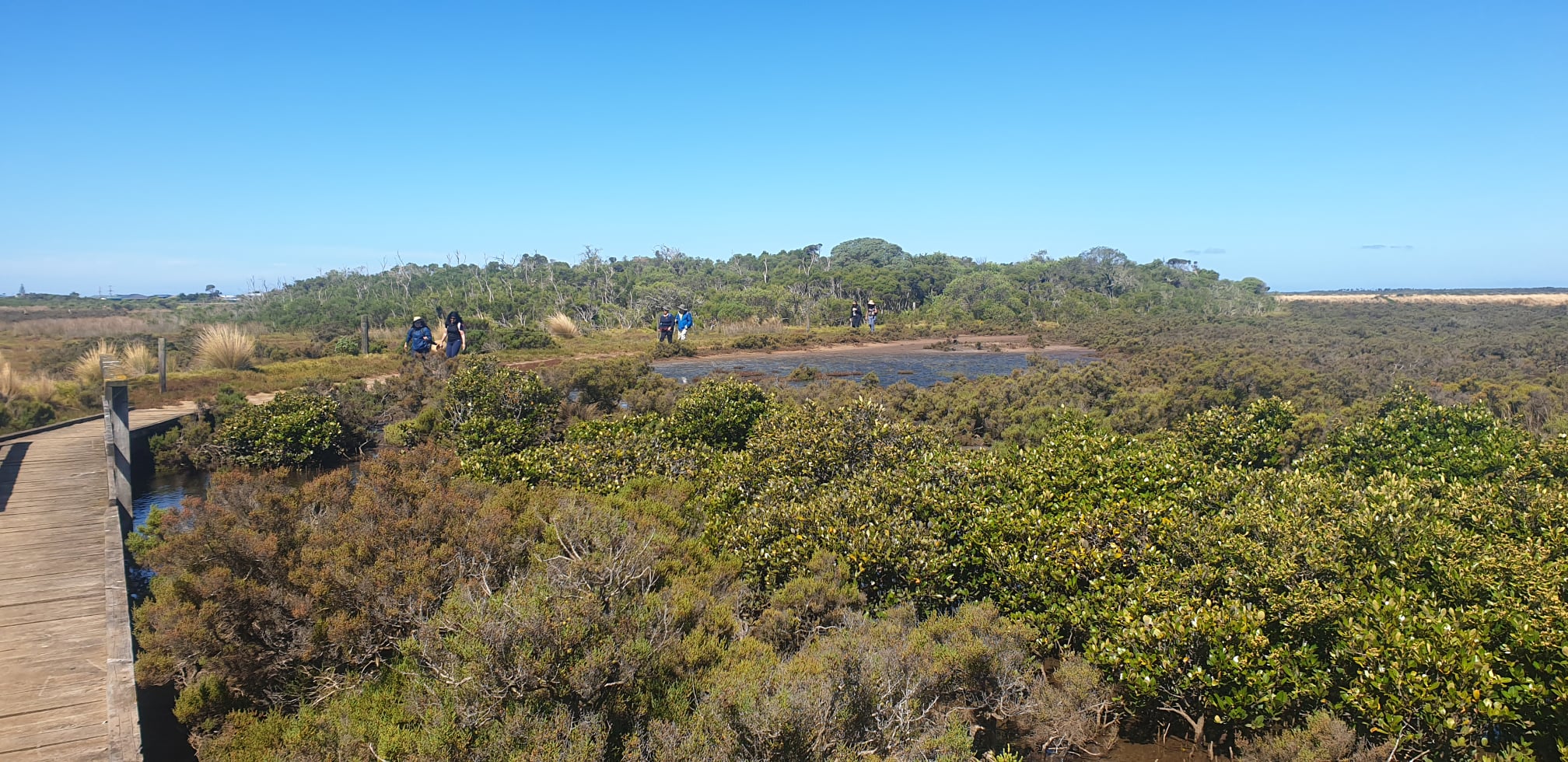
What happens on the walk?
Participants bring along a problem they would like to work on during the walk. This problem is re-named on the walk into something more meaning to the participant.
This experience includes sections of walking in contemplation, giving awareness to a series of questions, followed by periods of rest and reflection. Participants will carry a journal with them to record some reflections. On the journey out, the problem is explored in depth. On the return walk, participants explore skills, knowledge and values used to challenge their problem, their preferred storylines and actions they would like to take to strengthen their preferences for life.
Upon emerging from the bush, we will hold a graduation tea ceremony where significant others such as friends and family can witness the achievement of their loved ones.
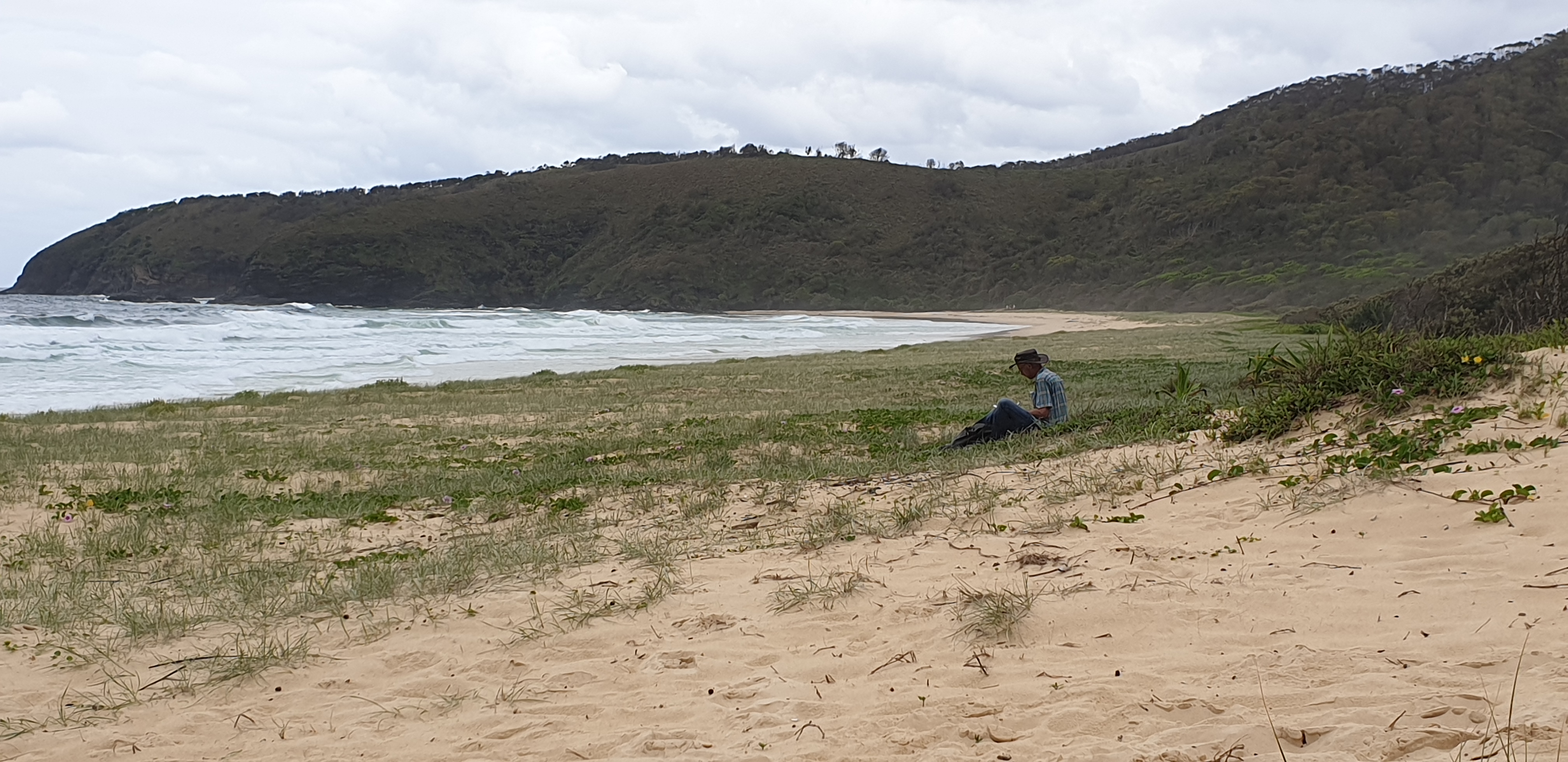
What kind of problem can you work on during the walk?
Anything at all. It could be stress, anxiety, depression, anger, low self esteem, illness or pain, grief or loss, climate anxiety, bullying etc.
How does the walk work?
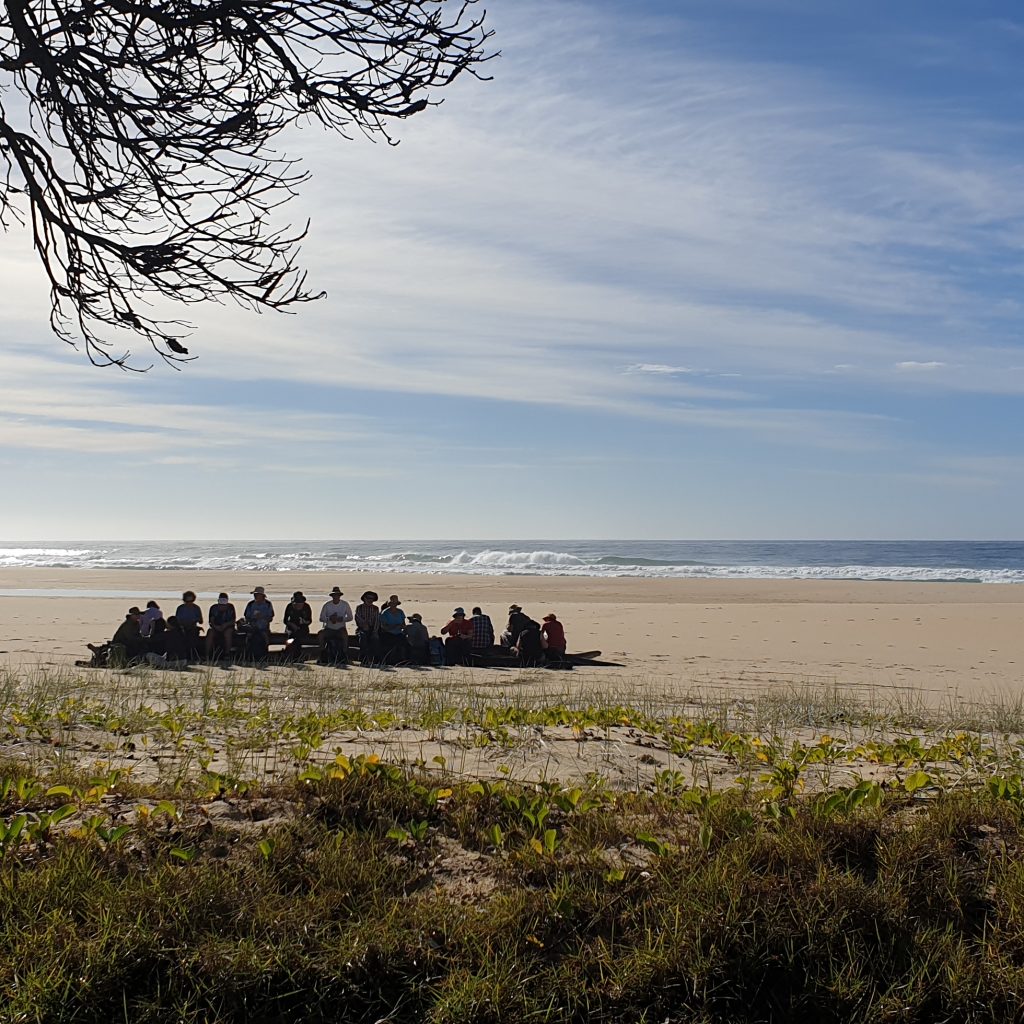
The walk acts a metaphor for reflecting on the stories of our lives. On our journey out, we take note of certain landmarks or resting places where our problem story is explored. At the mid way point, a definitional ceremony marks the leaving behind or letting go of those parts of the problem story that doesn’t serve us anymore. The return journey, retracing our footsteps allows us to see our problem story from an alternative perspective, both physically and through new thoughts, ideas and reflections.
Narrative techniques woven into the walk include externalising, development of position maps, remembering, outside witness practice, re-authoring, therapeutic letters and definitional ceremonies along with therapeutic practices of mindfulness, relaxation and nature therapy.
Your Guides
Your facilitator on this walk is Lucy Van Sambeek (Accredited Mental Health Social Worker & Certified Nature Therapy Guide).
What should participants be prepared for?
- Willing to work on a problem that is affecting their life
- Willing to participate in a walk that may test their physical fitness (medium level of fitness ideal)
- A small amount of disclosure within a group setting, to the degree that you feel comfortable
- Happy to enjoy quiet and alone time with your own thoughts
- Any surprises that nature can sometimes throw at us
What are the benefits and outcomes for participants?
During the walk participants will be able to separate themselves from their problem, thereby developing a sense of agency over their problem. Participants will receive support and encouragement from other group members who are also going through difficult times.
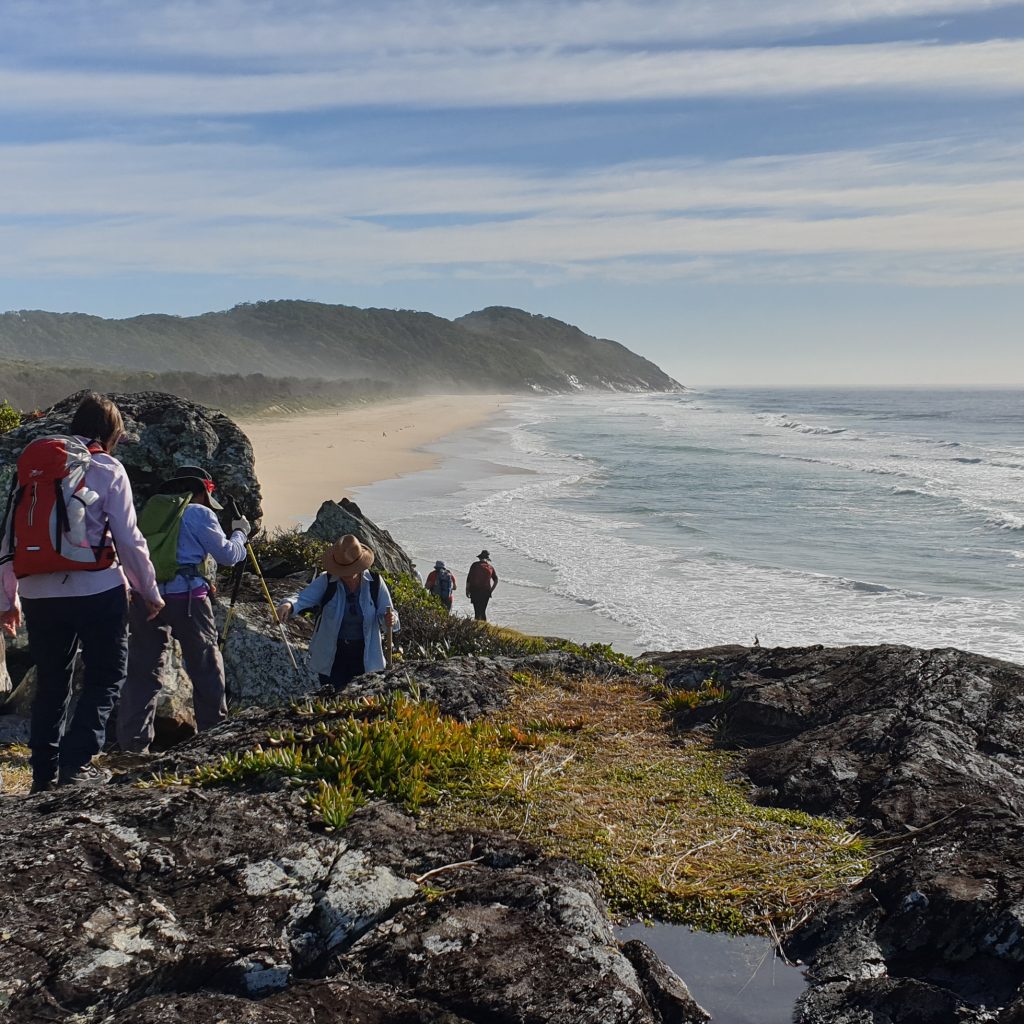
Facilitators in collaboration with nature will guide participants in mindfulness practice, identify supports, enhance emotional and body awareness, develop positive self talk, all whilst getting exercise and feeling a sense of achievement!
Participants will leave with a different perspective of their problem story, based on a preferred or alternative story of their lives developed through their own reflections and thoughts.
There are also multiple health and well-being benefits of simply being in nature. They include increased immune function, reduced blood pressure and rates of cardiovascular and respiratory disease, reduced stress, depression and anxiety, improved mood and thinking, increased focus and concentration, improved mental performance and creativity, improved rates of recovery from surgery and illness, increased energy and better sleep.
What have others said about Narrative Walks?
“It is a really great way to refresh your thinking and challenge yourself, to take a new view of a problem.”
“I really liked the structure allowing sufficient time to reflect.”
“It allows you to gain a new perspective; a new way of seeing ‘me’.”
“What a great process the narrative walk was. I really got a lot out of it. It took reframing to another level because of the structure of the walk, the writing exercises and the sharing among participants and the incredible expansiveness of the natural environment with all its parallels to life’s journeys….the beauty, the lushness, the uphill climbs, the downhill times that might be dark holes or smooth sailing…”
“For me the narrative walk gave me the opportunity to look more deeply into my experience of what I have always thought of as anxiety. I realised though through the connection with nature that anxiety is the symptom rather than the ‘problem’, and that the problem isn’t really a problem but rather a state of being that is me. I’m a very sensitive soul, and that’s ok, even more than ok. It’s a gift! I have never thought about my experience in this way before, and now that I’ve had that opportunity, a whole new experience is emerging!”
What happens after the walk?
One week after the walk, participants receive a letter from the facilitators, thanking them for their attendance and documenting some of the significant words heard or witnessed on the walk. This letter may also ask questions for participants to consider in strengthening their personal agency.
Participants will keep their journals as a reminder of their journey through the bush and the narrative metaphor as it unfolded in their reflections and processing. Participants can choose to come back and walk again in the future if they wish. They may speak with others about their experience and invite them along, or step up to be mentors on future walks.
Participants have the option of receiving ongoing one-to-one counselling and ecotherapy from Lucy, an Accredited Mental Health Social Worker.
When and where is the next ‘Narrative Walk’?
Port Albert, Saturday January 13, 2024.
How much does it cost?
$150 – Full fee.
Rebates (of $106.05) are available with Mental Health Treatment Plan and referral from your GP or talk to your NDIS co-ordinator about funding this initiative.
We do not turn away those wishing to access ‘Narrative Walks’ due to financial hardship. Please talk to us about your situation to explore your options.
Registration
Please contact Lucy Van Sambeek for more information and registration on 0417 927 657 or lucy(at)metaphoricallyspeaking(dot)com(dot)au
